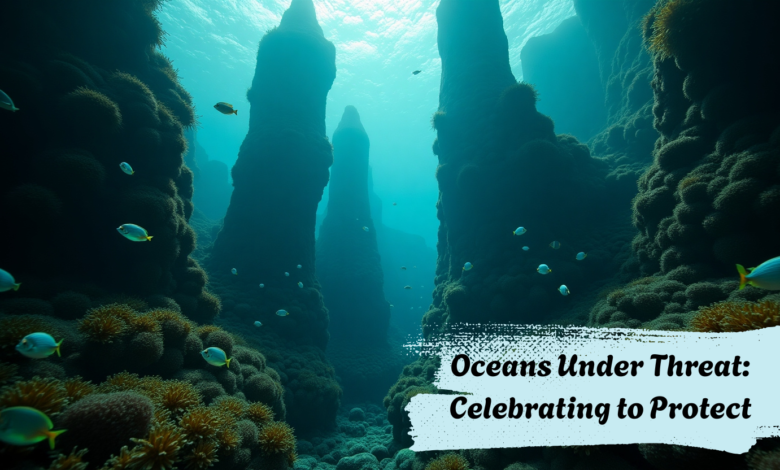
I. Introduction
a) Definition and Purpose of World Ocean Day
World Ocean Day is an annual global event observed on June 8 to celebrate the ocean’s vital role in sustaining life on Earth and to promote its conservation. The day serves as a platform to raise awareness about the significance of oceans and to encourage collective action towards their protection. It aims to unite individuals, communities, and organizations worldwide in efforts to safeguard marine environments and ensure sustainable use of ocean resources.
b) Historical Context: From Proposal to Global Recognition
The concept of World Ocean Day was first proposed by Canada at the 1992 Earth Summit in Rio de Janeiro. The initiative gained momentum through coordinated efforts by The Ocean Project and the World Ocean Network, leading to the United Nations officially recognizing June 8 as World Oceans Day in 2008. This recognition aimed to highlight the importance of oceans and to foster global cooperation in addressing marine environmental challenges.
II. Significance of World Ocean Day
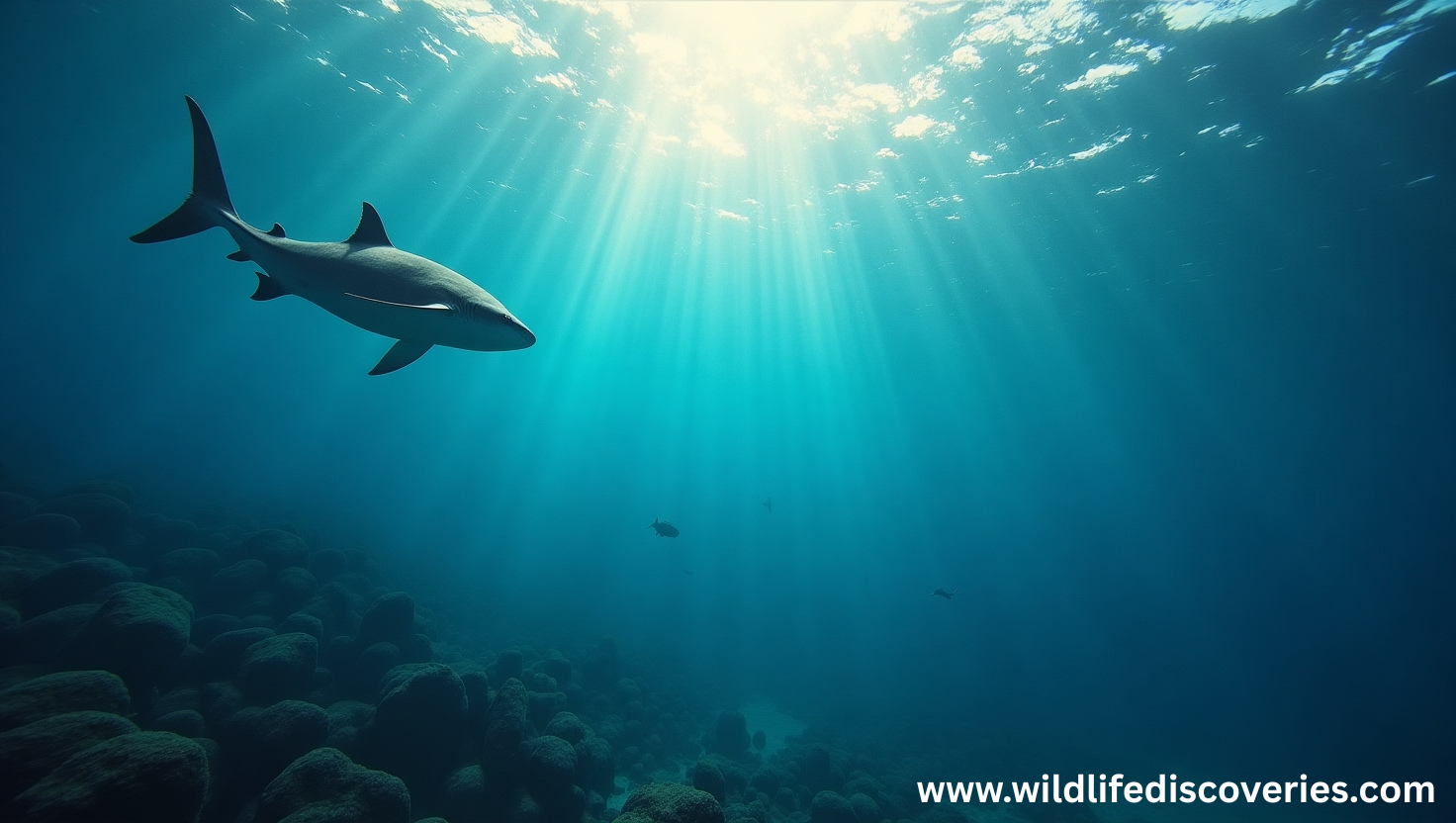
(a) Environmental Importance
World Ocean Day serves as a powerful reminder of the essential role oceans play in maintaining the planet’s ecological balance. Oceans cover over 70% of the Earth’s surface and are the planet’s largest ecosystem. They act as the Earth’s life support system by regulating climate, producing oxygen, and providing habitat to an immense variety of species. Oceans absorb vast amounts of carbon dioxide, helping to moderate global temperatures and reduce the effects of climate change. Unfortunately, human activities such as pollution, overfishing, and coastal development are placing these ecosystems under significant stress. Raising awareness about these threats is vital, and World Ocean Day is a catalyst for initiating environmental stewardship and change on a global scale.
- Oceans as Regulators of Climate and Oxygen Production
Oceans are a major player in Earth’s climate system. They absorb about 30% of the carbon dioxide produced by human activities and more than 90% of the excess heat trapped by greenhouse gases. This ability to store heat and carbon helps buffer the planet from the worst effects of global warming. Furthermore, marine plants such as phytoplankton contribute to more than half of the Earth’s oxygen supply through photosynthesis. This means that every second breath we take is thanks to the ocean. However, climate change is altering ocean temperatures and chemistry, causing ocean acidification and deoxygenation, which disrupt marine ecosystems and threaten this delicate balance.
- Biodiversity Hotspots: Marine Life and Ecosystems
The ocean is home to an astonishing range of life, from microscopic plankton to the largest mammals on Earth. Coral reefs, seagrass beds, mangrove forests, and deep-sea trenches each host unique ecosystems with incredible biodiversity. Coral reefs alone, despite covering less than 0.1% of the ocean floor, support around 25% of all marine life. These ecosystems are not just valuable for their beauty or biological interest; they provide services essential for human survival, including food, medicine, and coastal protection. However, rising sea temperatures, ocean acidification, pollution, and destructive fishing practices are threatening these biodiversity hotspots, leading to habitat loss and species extinction at an alarming rate.
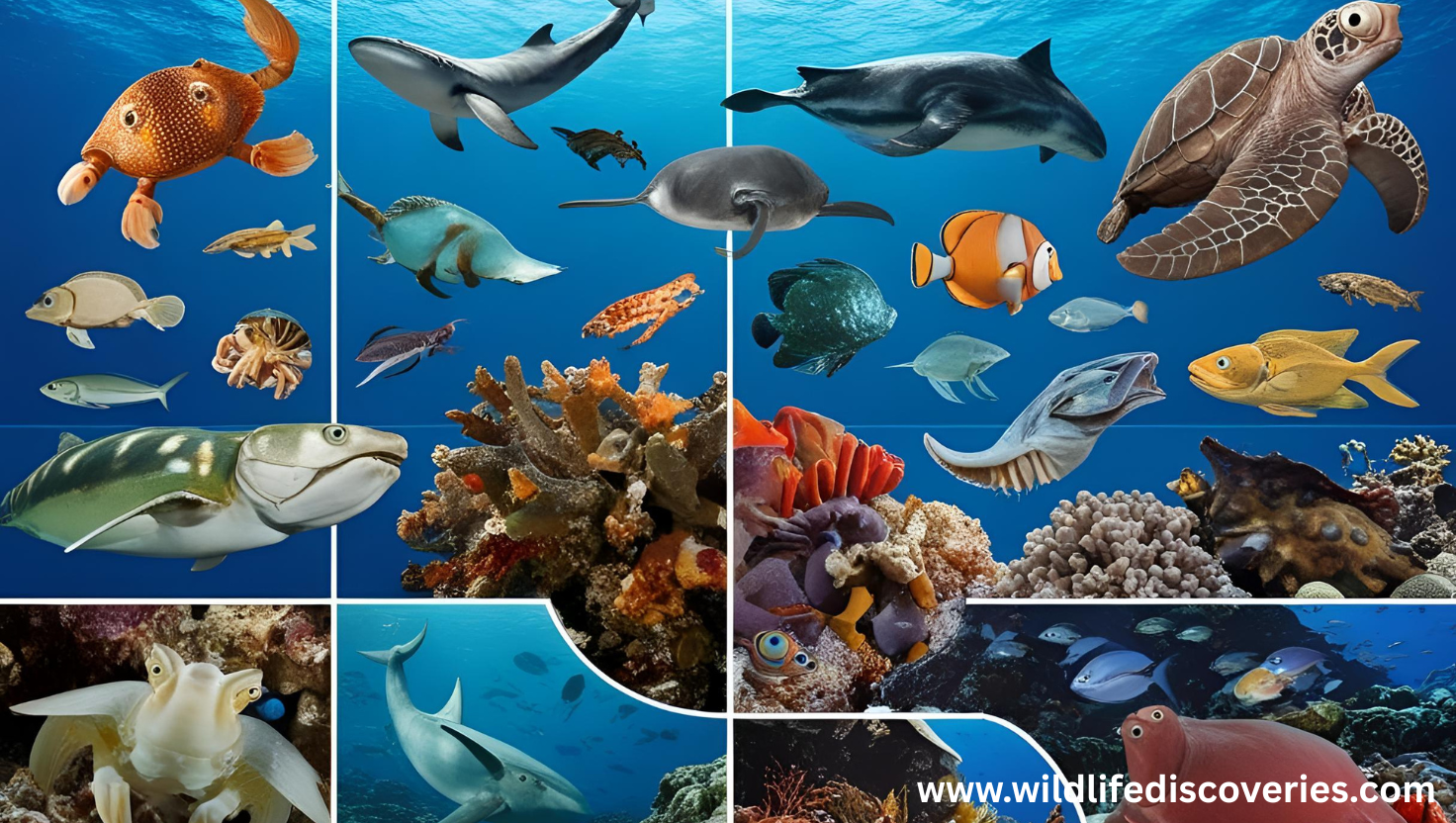
(b) Economic and Social Importance
Oceans are crucial to the global economy. They are a foundation for international trade, transportation, energy, and especially food. The “blue economy” includes all economic activities related to oceans, seas, and coastal areas, ranging from fishing and shipping to tourism and offshore wind energy. This economy supports the livelihoods of billions of people worldwide and contributes trillions of dollars to global GDP annually. The ocean is also a vital source of protein for billions of people, especially in developing countries where marine resources form the backbone of national diets and economic systems. Preserving ocean health is therefore essential not only for ecological reasons but also for ensuring sustainable economic development and global food security.
- Livelihoods Dependent on Marine Resources
Countless communities, particularly in coastal and island nations, depend directly on the ocean for their survival. Fishing and aquaculture industries provide employment to over 200 million people globally and supply a critical source of income and nutrition. Beyond these industries, marine transport, tourism, and renewable energy sectors offer additional livelihoods. As climate change impacts grow and marine resources are depleted by overuse, these communities face increasing uncertainty and risk. Sustainable ocean management practices, combined with policies that protect both the marine environment and the people who depend on it, are vital to preserving these livelihoods.
- Cultural and Recreational Value of Oceans
The ocean holds deep cultural, spiritual, and recreational significance for people around the world. For many indigenous and coastal communities, the sea is more than a resource—it is a sacred part of their identity, mythology, and heritage. It plays a central role in traditional ceremonies, storytelling, and daily life. In addition, oceans offer recreational opportunities that contribute to human well-being, such as swimming, surfing, diving, and marine wildlife watching. These activities not only enrich lives but also support vibrant tourism industries. Protecting the ocean ensures that future generations can continue to experience and connect with its beauty, inspiration, and wonder.
III. Global Challenges Facing Oceans Today
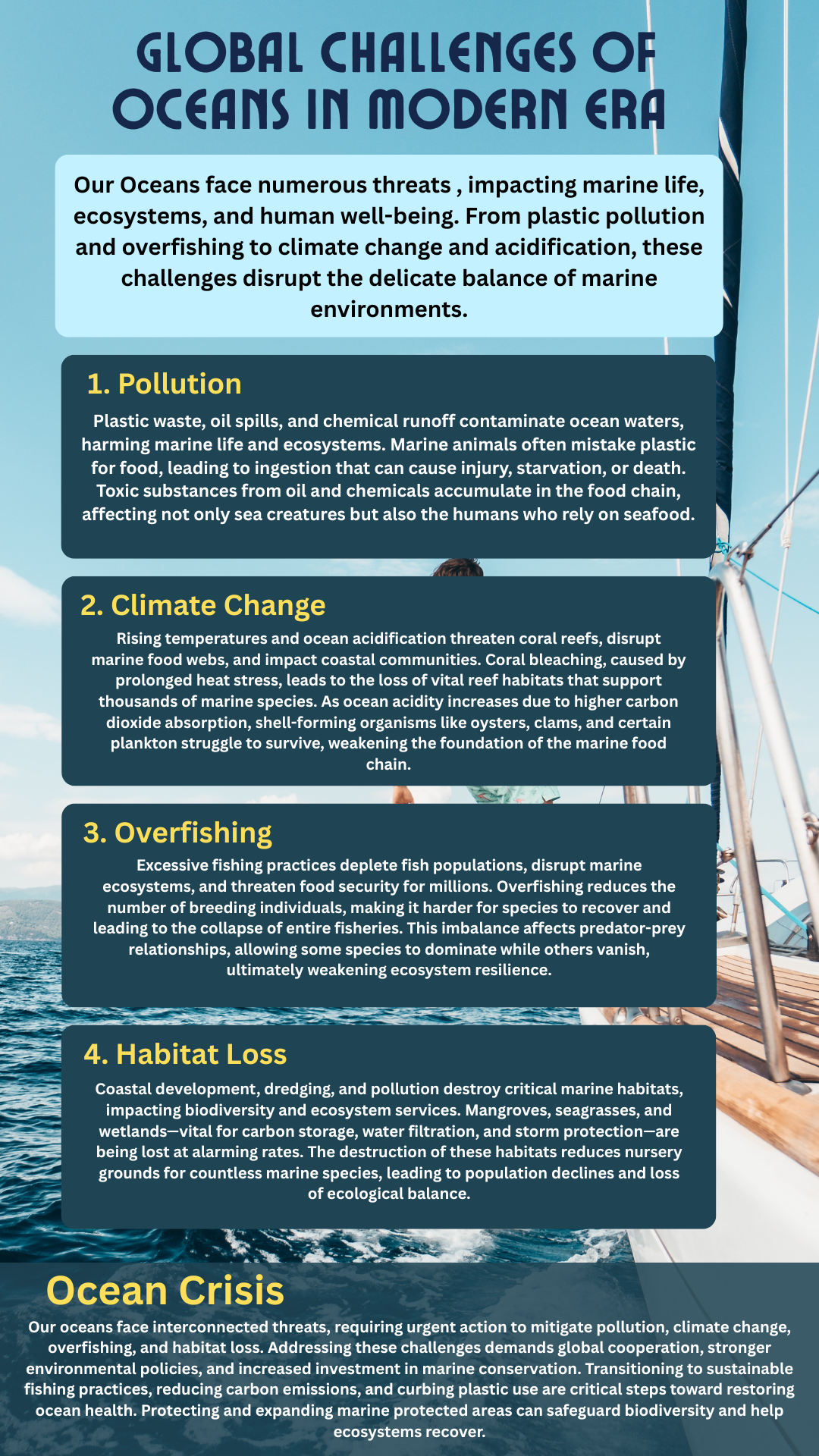
(a) Pollution
Pollution is one of the most pervasive threats to ocean health, encompassing a wide range of contaminants that degrade marine environments. Among the most concerning pollutants are plastics, which persist in the ocean for hundreds of years, breaking down into microplastics that are ingested by marine life and enter the food chain. Chemical pollutants, such as pesticides, heavy metals, and pharmaceuticals, also accumulate in marine ecosystems, leading to toxic effects on marine organisms and posing risks to human health through seafood consumption. The accumulation of these pollutants disrupts the delicate balance of marine ecosystems, affecting biodiversity and the overall health of the oceans.
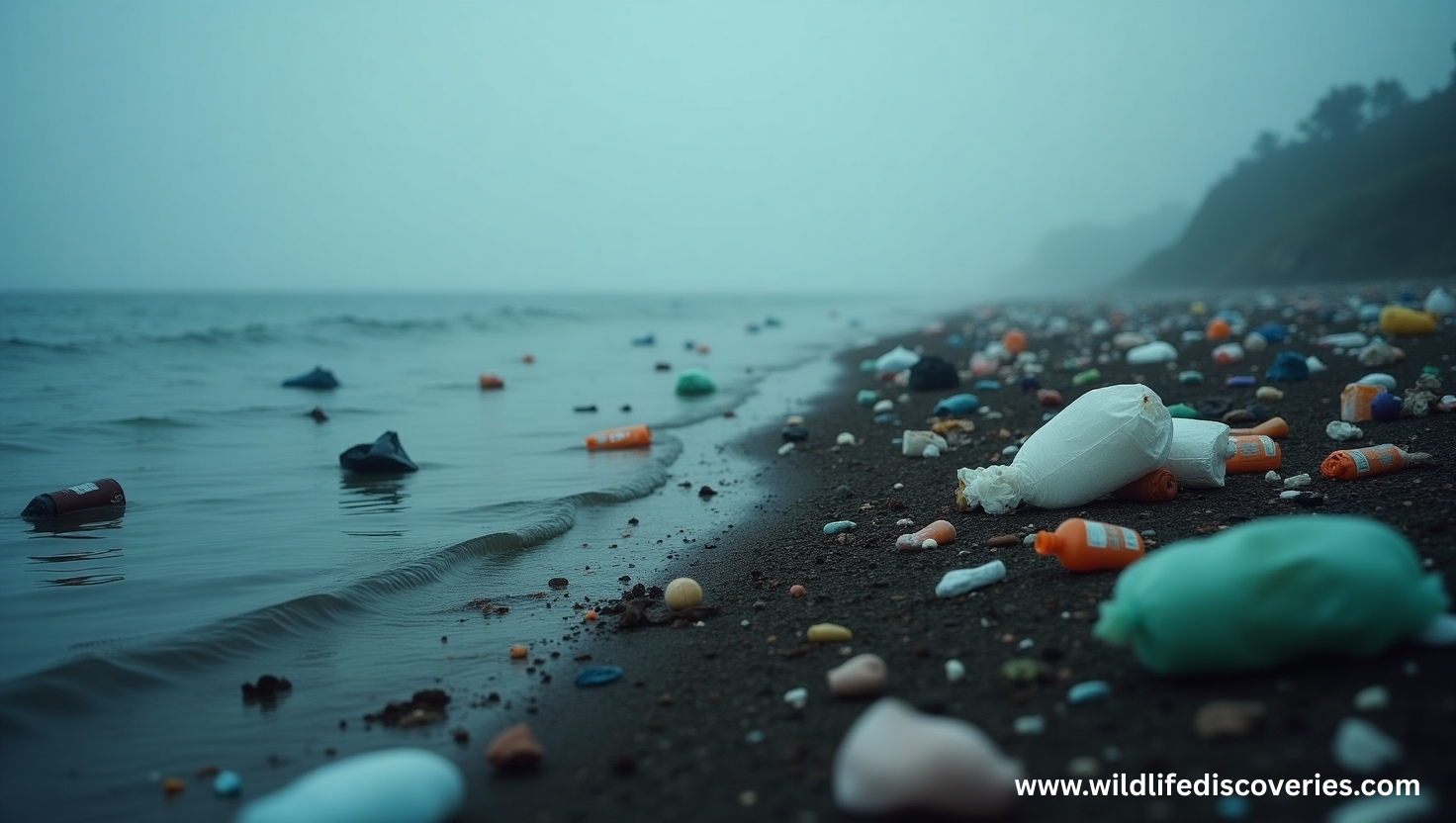
- Impact of Plastic Waste and Chemical Contaminants
Plastic waste is a significant concern, with millions of tons entering the ocean annually. This waste entangles marine animals, damages coral reefs, and introduces toxic substances into the marine food web. Chemical contaminants, including persistent organic pollutants (POPs), heavy metals, and pharmaceuticals, accumulate in marine organisms, leading to bioaccumulation and biomagnification. These contaminants can disrupt reproductive systems, impair immune functions, and cause long-term health issues in marine species, ultimately affecting human health through seafood consumption.
(b) Overfishing
Overfishing occurs when fish are caught faster than they can reproduce, leading to the depletion of fish stocks and disruption of marine ecosystems. This practice threatens biodiversity, as it removes key species that maintain the balance of marine food webs. The decline in fish populations also affects the livelihoods of communities dependent on fishing, undermining food security and economic stability.
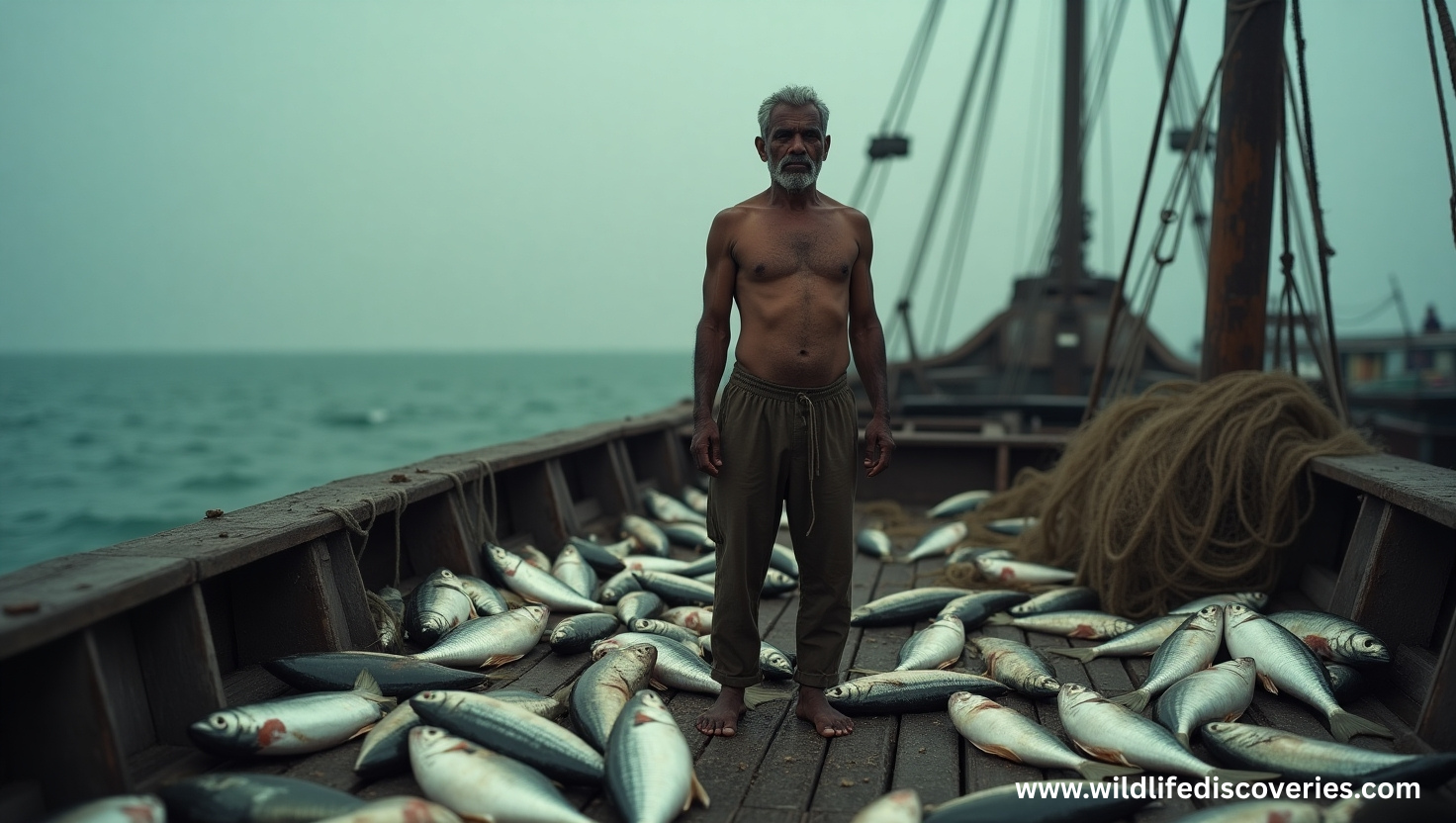
- Threats to Fish Populations and Marine Food Chains
Overfishing leads to the depletion of fish populations, particularly apex predators like sharks and large fish, which play crucial roles in maintaining the health of marine ecosystems. The removal of these species can cause imbalances, leading to the proliferation of prey species and the degradation of habitats such as coral reefs. Furthermore, overfishing disrupts the marine food chain, affecting the availability of food for other marine organisms and leading to a decline in overall biodiversity.
(c) Climate Change
Climate change is causing ocean temperatures to rise, leading to coral bleaching, the loss of ice habitats, and the migration of marine species to cooler waters. Increased carbon dioxide levels are also leading to ocean acidification, which affects the ability of marine organisms to build shells and skeletons. These changes disrupt marine ecosystems and threaten the survival of many species.
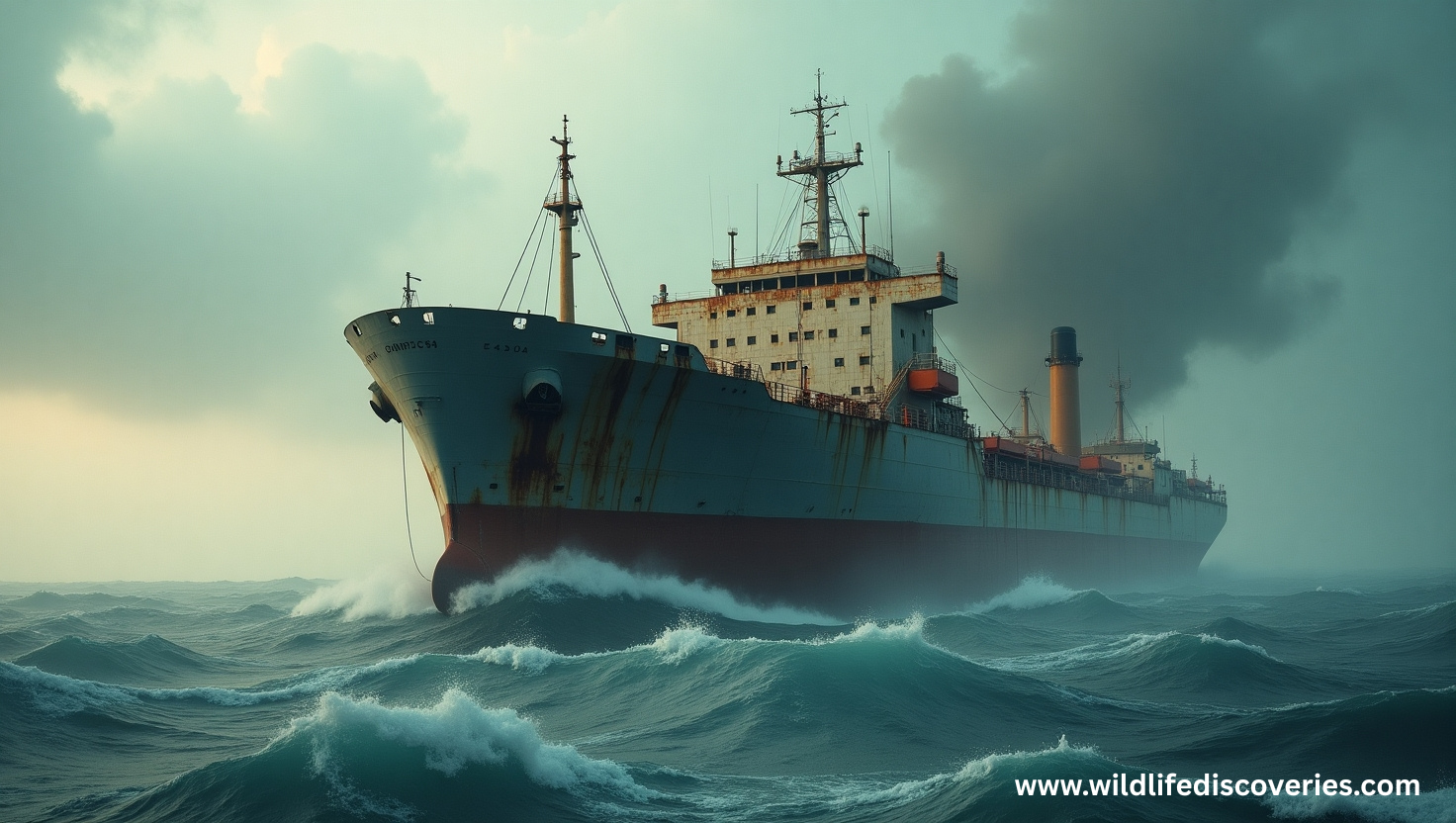
- Effects of Ocean Warming, Acidification, and Deoxygenation
Ocean warming leads to the loss of biodiversity, as many marine species cannot adapt to rapidly changing temperatures. Ocean acidification, resulting from increased carbon dioxide absorption, reduces the availability of calcium carbonate, essential for the formation of shells and skeletons in marine organisms. Deoxygenation, the decline in oxygen levels in ocean waters, creates hypoxic zones where marine life cannot survive, leading to the collapse of local ecosystems.
(d) Habitat Destruction
Habitat destruction, including the loss of coral reefs, mangroves, and seagrasses, is a significant threat to marine biodiversity. These habitats provide essential services such as coastal protection, carbon sequestration, and nursery grounds for many marine species. Their destruction due to human activities like coastal development, pollution, and unsustainable fishing practices leads to the loss of biodiversity and the degradation of marine ecosystems.
- Loss of Coral Reefs, Mangroves, and Seagrasses
Coral reefs are highly sensitive to changes in water temperature and quality, and their degradation due to warming waters, acidification, and pollution leads to the loss of biodiversity and the collapse of local fisheries. Mangroves and seagrasses are vital for coastal protection and carbon storage, but they are being destroyed by coastal development, pollution, and climate change. The loss of these habitats diminishes the resilience of coastal ecosystems and increases vulnerability to natural disasters.
IV. World Ocean Day Themes and Initiatives
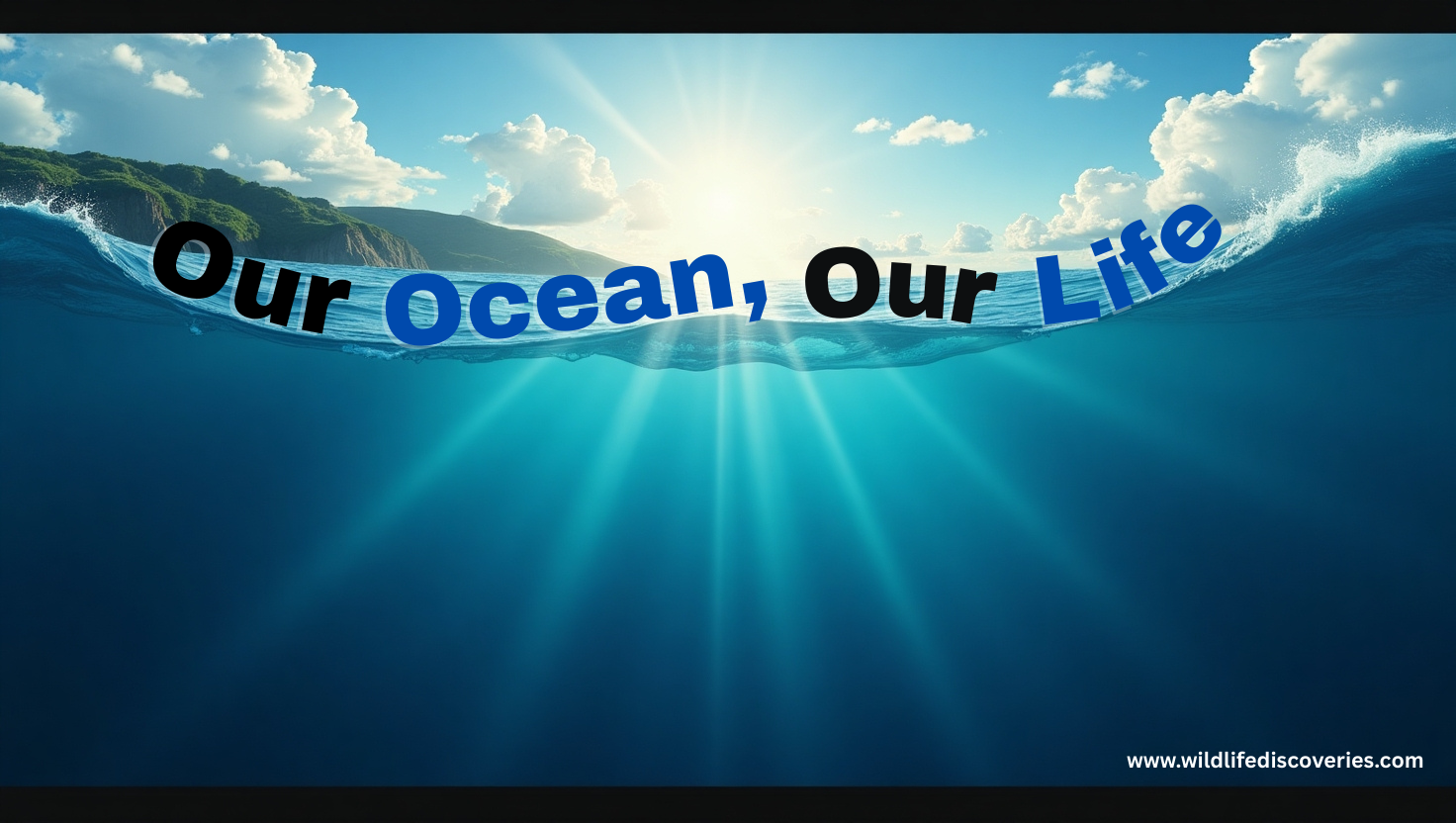
(a) Annual Themes and Their Focus Areas
World Ocean Day, celebrated annually on June 8, designates specific themes each year to address pressing oceanic concerns and inspire collective action. These themes serve as focal points for global initiatives aimed at preserving ocean health.
- Highlighting Specific Issues Each Year
Each year’s theme is carefully selected to spotlight critical issues affecting the oceans, guiding global efforts and discussions. For example, the 2024 theme, “Awaken New Depths,” emphasized the urgency of transforming our relationship with the ocean, highlighting its role in sustaining life and the need for deeper engagement with marine conservation.
(b) ’12 Months of Action’ Initiative
Beyond the annual observance, World Ocean Day promotes year-round engagement through the “12 Months of Action” initiative. This program encourages individuals and organizations to participate in monthly activities focused on various aspects of ocean conservation, fostering continuous commitment to protecting marine environments.
- Year-Round Activities and Campaigns
World Ocean Day extends its impact through a variety of campaigns and activities that persist throughout the year. These include educational programs, community clean-ups, policy advocacy, and collaborative projects with global partners, all aimed at addressing challenges such as plastic pollution, overfishing, and habitat destruction.
- 2025 Focus: Catalyzing Action for Ocean and Climate
The 2025 World Ocean Day theme, “Sustainable fishing means more,”
The theme for World Oceans Day 2025—“Sustainable fishing means more”—highlights the essential role that oceans play in maintaining life on Earth. It calls for a deepened sense of respect, awe, and responsibility for protecting the oceans.
This year’s theme encourages people to reconnect with the beauty and mystery of the ocean while recognizing our duty to sustain the very system that supports us all.
Understanding the 2025 Theme
The ocean is a vast and intricate system that provides essential services:
Oxygen Production: Marine plants, especially phytoplankton, contribute significantly to the oxygen we breathe.
Climate Regulation: Oceans absorb carbon dioxide and help regulate the Earth’s climate.
Biodiversity: They are home to a diverse range of species, many of which are yet to be discovered.
Economic Resources: Oceans support livelihoods through fishing, tourism, and maritime trade.
V. Why World Ocean Day Matters Now More Than Ever?
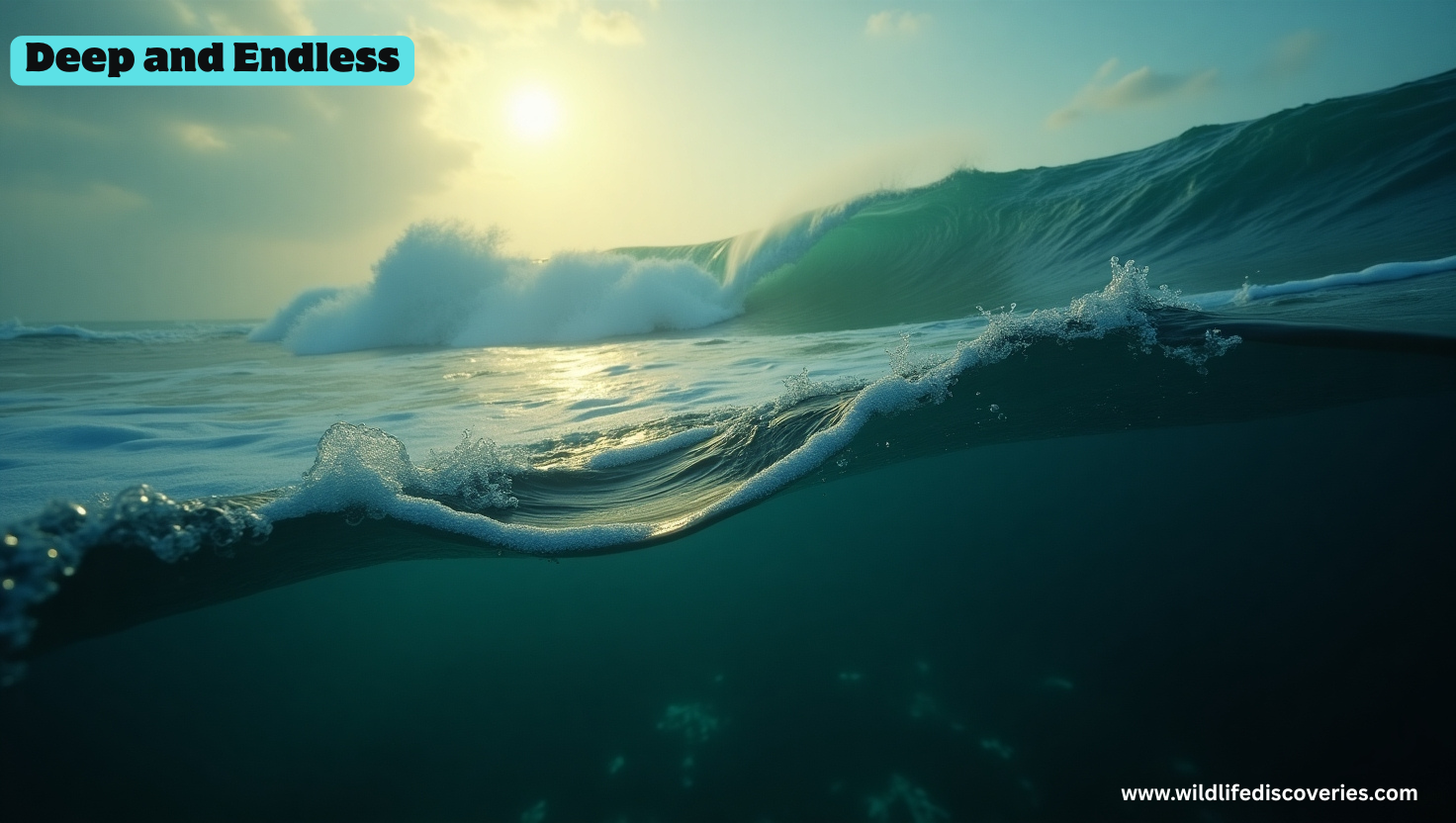
(a) Escalating Environmental Threats
World Ocean Day has never been more crucial, given the accelerating environmental threats facing the world’s oceans. As the planet faces a series of interconnected crises—ranging from pollution to climate change—the health of the oceans is deteriorating rapidly. Oceans, which once served as a buffer to climate change by absorbing carbon dioxide and heat, are now reaching tipping points due to human activities. These environmental challenges threaten not only marine biodiversity but also global ecosystems, livelihoods, and food security. The urgent need to address these issues is why World Ocean Day serves as a critical focal point for global awareness and action.
- Increasing Pollution and Habitat Loss
Pollution, particularly plastic waste, has become one of the ocean’s most pervasive threats. Millions of tons of plastic enter the oceans every year, where they persist for centuries, harming marine life and entering the food chain. Along with plastic, chemical pollutants like pesticides, heavy metals, and pharmaceuticals accumulate in marine ecosystems, leading to severe consequences for marine species and the humans who rely on them. This pollution is accompanied by the alarming loss of marine habitats. Coral reefs, mangroves, and seagrasses—vital ecosystems that provide food, shelter, and breeding grounds for countless species—are being destroyed by overfishing, coastal development, and the rising impacts of climate change. As these habitats degrade, biodiversity suffers, and the ocean’s ability to provide essential services is compromised.
- Accelerating Climate Change Impacts
Climate change is now a driving force behind many of the ocean’s challenges. Rising ocean temperatures are causing widespread coral bleaching, which has led to the collapse of coral reef ecosystems that support a quarter of all marine species. Additionally, the oceans’ role as a carbon sink is diminishing as they become more saturated with carbon dioxide, resulting in increased acidification. This acidification weakens marine life that relies on calcium carbonate, such as shellfish, corals, and plankton. The warming ocean also contributes to rising sea levels, coastal flooding, and the loss of critical habitats, threatening both wildlife and human communities. The cascading effects of climate change on oceans require urgent, transformative action to mitigate further damage and prevent irreversible consequences.
(b) Urgency for Collective Action
The interconnected nature of environmental, social, and economic challenges demands that the world act collectively to address the crisis facing the oceans. The health of the oceans is intrinsically linked to the health of the planet. Given the shared nature of oceanic resources, the responsibility to protect them lies not just with coastal nations but with the entire global community. World Ocean Day serves as an annual call to action for individuals, communities, governments, and organizations to unite in safeguarding the oceans through conservation, sustainable practices, and global cooperation. Without immediate and coordinated efforts, the ongoing degradation of marine environments will have profound consequences for future generations.
- Need for Immediate and Inclusive Conservation Efforts
The urgency of addressing ocean health cannot be overstated. Immediate action is required to halt the ongoing degradation and to implement meaningful conservation efforts that can restore marine ecosystems and safeguard biodiversity. These efforts must be inclusive, taking into account the needs and rights of vulnerable populations, particularly those in coastal and island communities who are most directly impacted by the loss of marine resources. Indigenous communities, whose knowledge and traditions often hold key insights into sustainable practices, must also be involved in conservation efforts. Ensuring that all voices are heard and that equitable solutions are implemented is critical to the success of global conservation initiatives.
(c) Opportunities for Policy and Global Cooperation
Despite the many challenges, World Ocean Day also brings attention to the potential for positive change through international collaboration and policy. In recent years, there has been a growing recognition of the ocean’s importance, leading to an increasing number of international agreements and policies aimed at marine conservation. For example, the United Nations has adopted the Sustainable Development Goal 14 (SDG 14), which aims to conserve and sustainably use the oceans, seas, and marine resources. The “High Seas Treaty,” adopted in 2023, is another significant step forward, providing a framework for the protection of biodiversity in areas beyond national jurisdiction. These agreements, alongside local and national policies that prioritize ocean protection, offer an opportunity to catalyze widespread action to preserve the oceans for future generations.
- Recent International Agreements and Their Potential
Recent international agreements provide a foundation for hope and action. The 2023 High Seas Treaty, for example, creates new mechanisms for establishing marine protected areas and protecting marine biodiversity in areas that lie beyond the reach of individual countries. Similarly, the United Nations Decade of Ocean Science for Sustainable Development (2021–2030) is a global initiative aimed at advancing ocean science to support conservation efforts, improve ocean governance, and promote sustainable ocean-based economies. These agreements highlight the growing recognition that the health of the oceans is crucial for the health of the planet and that coordinated international action is essential to reversing the damage done to marine environments. World Ocean Day amplifies these initiatives, rallying global communities to ensure the success of these agreements and further the protection of the oceans.
VI. How Individuals and Communities Can Participate?
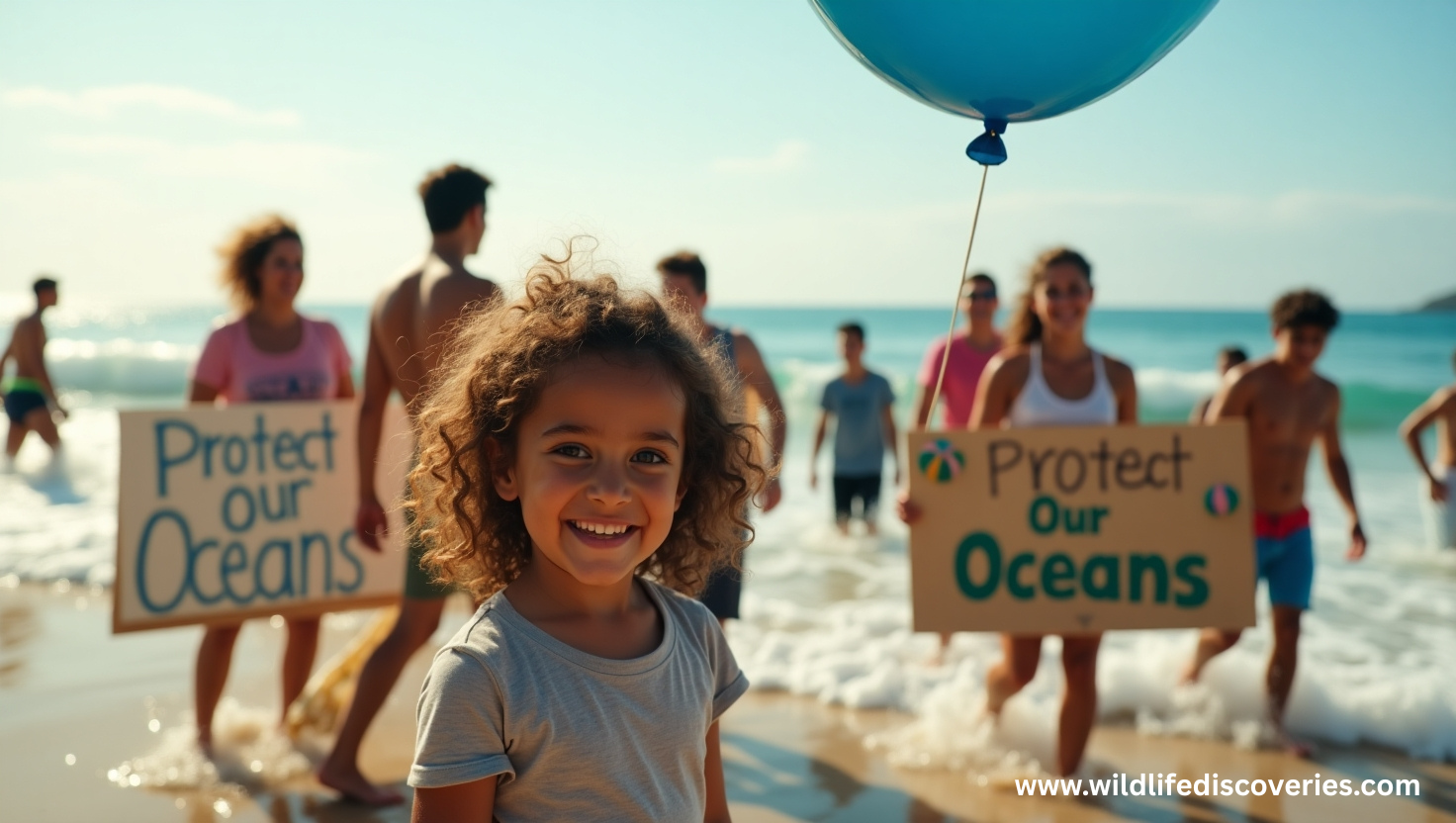
(a) Educational Outreach
Educational outreach is one of the most effective ways individuals and communities can participate in ocean conservation. By raising awareness about the importance of oceans and the threats they face, people can inspire others to take action. Schools, universities, community centers, and local organizations can play a key role by organizing educational programs, providing resources, and engaging in discussions on ocean-related issues. Outreach can include teaching people about the ocean’s vital role in the Earth’s ecosystem, the impact of human activities, and how everyone can contribute to protecting marine life. Additionally, digital platforms, documentaries, and social media campaigns can amplify these educational efforts to a global audience, making ocean conservation a widely recognized priority.
- Organizing Workshops, Seminars, and Awareness Campaigns
Workshops, seminars, and awareness campaigns are critical in providing both knowledge and practical solutions for protecting the oceans. Communities and organizations can host events that bring together experts, policymakers, and local community members to discuss pressing ocean issues. Workshops can focus on topics such as sustainable fishing practices, pollution reduction, the importance of marine protected areas, and the effects of climate change on the oceans. These events are a great opportunity for individuals to learn more, ask questions, and gain insights into how they can contribute. Awareness campaigns, whether local or global, can spread messages about ocean conservation through visual arts, public service announcements, and interactive activities to engage the public in collective efforts for change.
(b) Community Clean-Up Drives
One of the most impactful ways to protect the oceans is to engage in community clean-up drives. Local communities, schools, and environmental groups can organize clean-up events at beaches, rivers, and other coastal areas. These activities not only remove physical waste and pollution from marine environments but also raise awareness about the importance of reducing waste and recycling. By gathering volunteers to remove trash from beaches and rivers, communities help reduce the amount of pollution that eventually ends up in the ocean, particularly plastics that can harm marine life. These clean-up drives are also an opportunity to educate participants on the detrimental effects of littering and improper waste disposal, fostering a culture of responsible environmental stewardship.
- Beach and River Clean-Ups to Reduce Pollution
Beach and river clean-ups are particularly vital in areas where freshwater bodies meet the ocean. Rivers often carry a significant amount of waste from urban centers, agricultural runoff, and industrial activities, which ultimately end up in the ocean. Organizing clean-up efforts in these critical areas helps mitigate pollution at its source. Volunteers can focus on removing trash, particularly plastic waste, from these bodies of water, preventing it from entering the oceans. By engaging in these efforts, individuals can help reduce marine pollution, protect marine wildlife, and preserve the beauty of coastlines. These clean-ups also offer an opportunity for local communities to connect with nature and become more invested in the protection of their environment.
(c) Supporting Sustainable Practices
Individuals and communities can also make a difference by supporting sustainable practices in their daily lives. This includes making environmentally conscious decisions such as reducing plastic use, opting for sustainable seafood, and minimizing waste. Purchasing products that are made with environmentally friendly materials or that come from companies committed to sustainability can contribute to a broader movement toward ocean preservation. Communities can support businesses that engage in sustainable practices by choosing eco-friendly products and services. Additionally, the promotion of sustainable farming, eco-tourism, and renewable energy can significantly reduce human impact on marine ecosystems. By adopting and encouraging these practices, individuals can play a role in creating a more sustainable future for the oceans.
- Promoting Responsible Fishing, Consumption, and Waste Management
Responsible fishing is critical for maintaining healthy ocean ecosystems. Overfishing and destructive fishing practices deplete fish populations and damage marine habitats. Individuals and communities can support sustainable fisheries and opt for certified seafood products that are caught or farmed in an environmentally responsible manner. This includes making informed choices when purchasing fish or seafood by looking for eco-labels and certifications, which ensure that the product comes from a sustainable source. Additionally, individuals can promote responsible consumption habits by reducing food waste and supporting initiatives that encourage the proper disposal and recycling of waste. Ensuring that waste, especially plastics, does not end up in the ocean is a crucial part of maintaining the balance of marine ecosystems.
(d) Advocacy and Policy Engagement
Advocacy and policy engagement are essential for driving systemic change that protects the oceans. Individuals can participate by supporting local, national, and global campaigns that push for stronger environmental policies and marine protections. Participating in petitions, writing to legislators, and attending public hearings are practical ways to advocate for ocean conservation. Public engagement in advocacy helps raise the political profile of ocean-related issues and encourages policymakers to prioritize marine health in national agendas. Moreover, individuals can support environmental organizations that work on ocean-related issues, helping to amplify their efforts through donations, volunteer work, or collaboration.
- Participating in Campaigns and Lobbying for Protective Legislation
Campaigns aimed at lobbying for protective legislation are vital for securing long-term ocean conservation. Communities can mobilize to advocate for stricter regulations on marine pollution, sustainable fisheries management, and the establishment of marine protected areas. Individuals can engage in campaigns that call for reducing plastic production, banning harmful fishing methods, or increasing funding for ocean science research. Lobbying efforts, when backed by public support, can influence lawmakers to introduce or pass legislation that strengthens protections for marine ecosystems. This type of grassroots advocacy ensures that ocean conservation becomes a priority at the policy level, leading to stronger protections for marine life and ecosystems globally.
VII. Conclusion
World Ocean Day serves as a vital reminder of the oceans’ critical role in sustaining life on Earth. The day brings global attention to the importance of protecting our oceans, which regulate climate, produce oxygen, support biodiversity, and provide food and livelihoods for millions of people. Over the years, World Ocean Day has evolved into a global movement that unites individuals, communities, governments, and organizations in recognizing the urgent need for ocean conservation. The escalating threats posed by pollution, overfishing, habitat destruction, and climate change have made it clear that without collective action, the oceans and the many species that depend on them face dire consequences. By celebrating World Ocean Day, we acknowledge these challenges while also emphasizing the power of awareness, education, and collective action in addressing them. This day not only honors the oceans but also calls on humanity to take responsibility for their future health and well-being.




